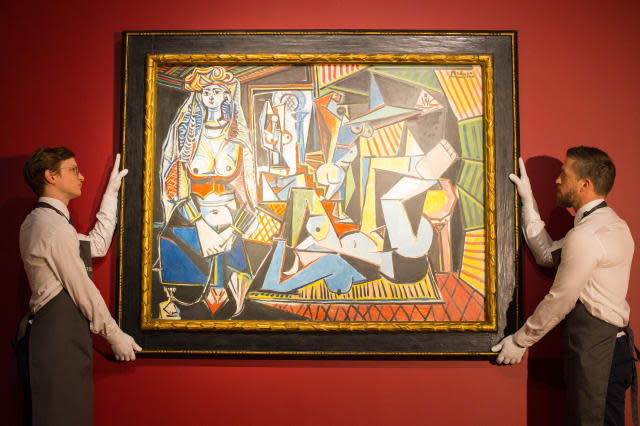Why are we seeing such incredible auction results?

In recent months we have seen a host of records set at auction, including the sale of the most expensive painting of all time - a Picasso painting called The Women of Algiers. It sold in New York for a total cost of $179.37 million, which not only raised eyebrows because of the incredible price the auction realised, but because it had been given an estimate of $140 million, and less than 20 years ago - in 1997 - the painting sold at auction for just $31.9 million.
%VIRTUAL-ArticleSidebar-investing-stories%
It demonstrates the huge increases in the value of modern masters, in a market that has begun to be described as 'frothy'. It also goes to show how unpredictable auctions can be.
How prices are set
When any item goes under the hammer, it will have been given an estimate by the auction house. This is roughly the value of the piece compared to similar items sold recently - or those available elsewhere on the market. This is the auctioneer's best guess of what it might fetch on the day.
However, these best guesses are not always spot on. Back in June 2012, David Lay auctions in Cornwall sold a piece of 18th century Chinese porcelain. It was a damaged and incomplete altarpiece that had been converted into a lamp.
The condition encouraged the auctioneer to place an estimate of £400-£600 on the piece. However, a number of bids from mainland China pushed the price up to a final sale of £25,000. Beating the estimate 40 times over is a fairly rare occurrence, but goes to show how far off an estimate can be.
The reason why so many estimates are off the mark is that prices are not just driven by the intrinsic value of the piece being sold: it's a question of demand. The selling price will depend partly on how much demand there is for the piece - and therefore how many people will wade in to push the price up.
It also depends on how much any individual buyer wants the piece in question. In theory you only need two determined would-be buyers to vastly inflate the selling price of a rare object.
It's one reason why we have seen such incredible results at a number of auctions, and we have brought together ten of the most jaw-dropping.
But what do you think? Are people overpaying for these items, or are they just setting a new price? Let us know in the comments.
Auction stories on AOL Money
Grateful Dead guitar sold for £340,000 at auction
Steve McQueen's Porsche up for auction
Record-breaking rocket up for sale





